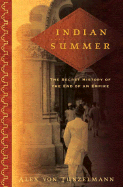As more independent bookstores consider the blog option, they face
certain questions. I tossed a few of these at Russ Marshalek,
marketing/PR director (and resident blog-meister) for
Wordsmiths Books, Decatur, Ga.
The original goals for the
Wordsmiths blog
were twofold and evolved from the early planning stages for the
bookshop. "As Zach [Steele, the store's owner] and I were sorting our
way through the process, basically with an idea, a dream, we thought,
'Why not write about it?' The book industry is, for some strange
reason, clouded in a mysterious, foggy haze, and so the goal was to
bring some light on exactly what goes into opening a bookstore. Also,
we wanted to build ground floor, grass-roots attention to the store
before there was a store. We wanted to build a community that would
have both input and interest in what we were doing."
Marshalek offered two reasons for booksellers to consider a store blog:
"1)
If someone who had never been to your store called you (or emailed you)
and asked why they should shop your store rather than buying a book at
Barnes & Noble or even Wal-Mart, what would you tell them? No, no,
not the four-letter expletive, I mean what makes your store YOUR store?
What makes you get up in the morning and do the often thankless job of
bookselling? Okay, that answer? That's your blog. That's your
direction. Every bookstore is unique, and all that uniqueness makes for
an interesting read. Whether it's fascinating to you writing it or not
is really secondary. The things we view as mundane can be, to others,
the most interesting stuff in the world.
"2) The fun stuff of
the industry really ends up going un-blogged. You won't want to, as a
bookstore, hit 'publish' on those scathing book reviews, nor will you
want to spill the beans about how mad you are at so-and-so bookshop
owner or so-and-so author. Seriously, there's no hazard as long as you
remember your audience."
Although Marshalek and Steele are the
primary bloggers at Wordsmiths, "our operations manager, Dea Anne,
blogs, as does our webmaster, Mike, and Zach's wife, Alice. Alice's
blogs are actually some of the best stuff on there. We have an awesome
staff. Everyone's so unique and lively. I think the 'fights' over books
that go on on the sales floor are some of the most fun things possible,
and they do need to be taken blog-side. It's honestly just been a
matter of having the time to create log-ins and show everyone around
the blog's interface."
Finding time to blog is bound to be a
challenge for booksellers, but Marshalek says "it's part of my job to
make sure the blog stays in shape. It's a huge part of what's helped
define us. Event photos, book reviews, all this stuff goes up, and it
all brings attention to what we do. It's also helped to create a
community of book lovers here in the south that just keeps growing by
the day. I always enjoy it, though, when I hear from a publisher
outside of the region that they've read the blog--the southeast in
general, and Georgia in particular, is neglected by a lot of publishers
as 'not being literary,' but it really is--and the more connected those
book lovers in the region are to one another, the more of a unified
voice is presented, and the more attention's drawn."
The final
bit of advice from Marshalek can be summed up quite simply: The only
thing we have to fear from technology is fear of technology itself. "I
come from a music journalism/marketing background, and music's an
industry that has been forced to evolve or die. I tend not to be at all
sympathetic to what I perceive as the book industry's fear of
technology. I hear stories of bookshop owners who have thrown massive
fits at the suggestion of possibly using the Internet to conduct
business and I cringe. Having a strong web presence is an easy way to
both spread out your customer base and narrow down your marketing to
specific targets.
"If I told you there was a way that you
could reach an unlimited number of book buyers who've never even been
in your store, from all around the world, for basically no money, you'd
jump at the idea. Do it. But do it properly."--
Robert Gray (column archives available at
Fresh Eyes Now)













 At midnight on August 14, 1947, Great Britain ceded rule of the Indian subcontinent, marking the end of its once-grand Empire and ushering in the independent nations of India and Pakistan. Present at the creation were the larger-than-life figures of Mohandas Gandhi, Jawaharlal Nehru, Mohammad Ali Jinna and Louis and Edwina Mountbatten, the last viceroy and vicereine of India. That midnight transfer of power has entered history as a defining moment of the 20th century and has acquired the aura of myth.
At midnight on August 14, 1947, Great Britain ceded rule of the Indian subcontinent, marking the end of its once-grand Empire and ushering in the independent nations of India and Pakistan. Present at the creation were the larger-than-life figures of Mohandas Gandhi, Jawaharlal Nehru, Mohammad Ali Jinna and Louis and Edwina Mountbatten, the last viceroy and vicereine of India. That midnight transfer of power has entered history as a defining moment of the 20th century and has acquired the aura of myth. 